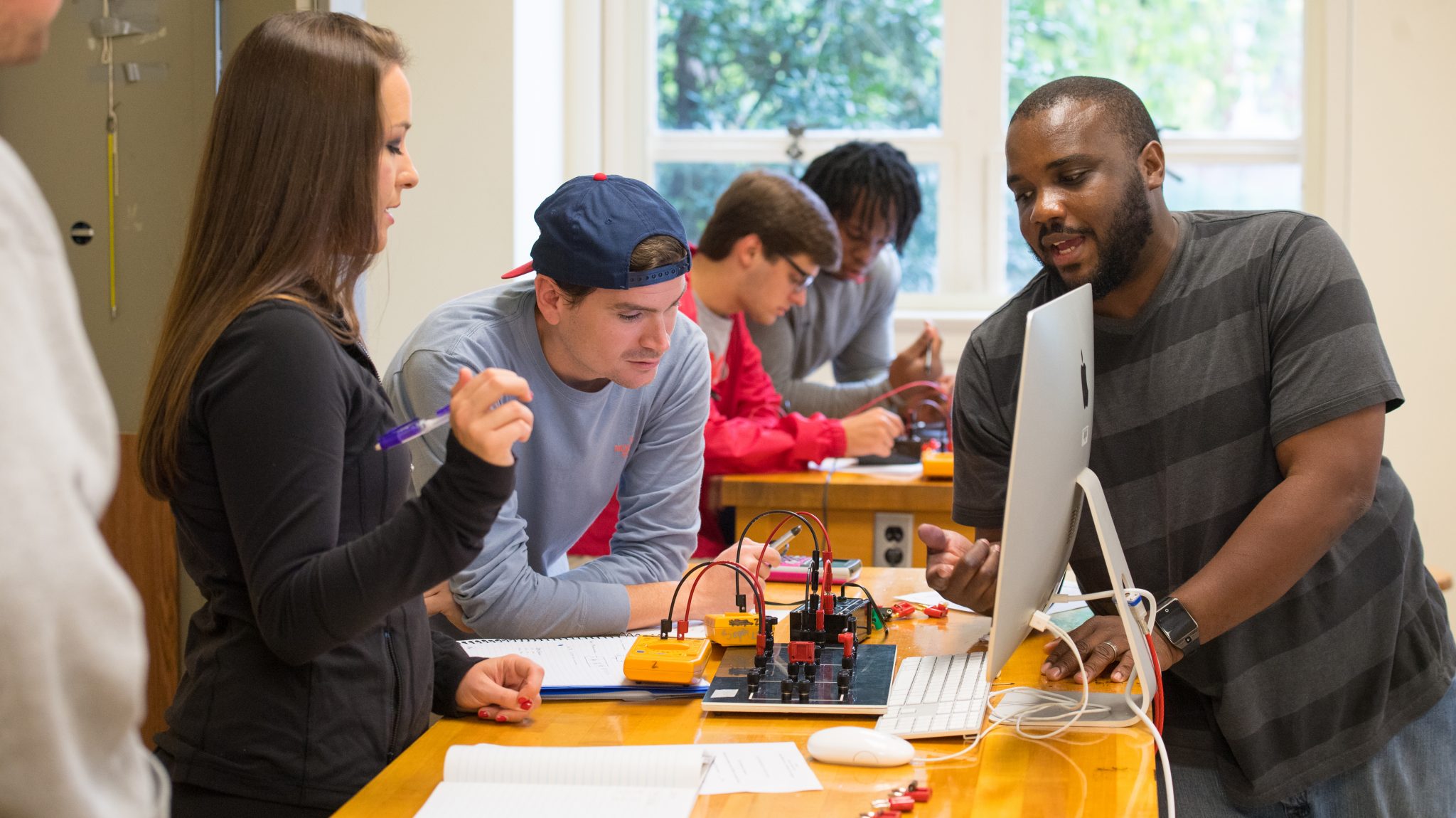
The University of Mississippi has launched its Academic Innovations Group to support faculty in improving classroom teaching and learning. Photo by Kevin Bain/Ole Miss Digital Imaging Services
OXFORD, Miss. – Looking to better serve faculty and seeking out new classroom and teaching inventiveness, the University of Mississippi has launched its Academic Innovations Group.
The group supports UM faculty in improving classroom teaching and learning through the invention, adoption and improvement of evidence-based strategies. The Academic Innovations Group, or AIG, consists of the Center for Excellence in Teaching and Learning, the Office of Academic Innovation, the Personalized Learning and Adaptive Teaching Opportunities program, and a new director of faculty development.
The unit also is responsible for fulfilling the goals of Think Forward, the 2019 Quality Enhancement Plan for the university, which focuses on critical thinking.
The group serves both Ole Miss and the state of Mississippi by importing classroom innovation from external environments and promoting classroom innovation from within the university community.
“All the units within AIG are connected to teaching and learning, and we are bringing together units that facilitate academic innovation and faculty development to enhance efficiency and effectiveness,” said Robert Cummings, executive director of academic innovation and associate professor of writing and rhetoric. “This new unit is better positioned to support faculty with a more coherent focus on teaching and learning.”
The purpose of innovation in academics is to help faculty apply the same creativity, curiosity, wisdom and passion they deploy in teaching and research toward the idea of improving the practice of both, based on evidence from insight and experience, Cummings said.
Joining Cummings within the new group are Nancy Wiggers, interim director of the Center for Excellence in Teaching and Learning; Josh Eyler, the university’s new director of faculty development; Patricia O’Sullivan, project coordinator for Externally Funded Academic Innovations Projects; and Melissa Wilson, staff assistant.
“Like other disciplines, education, pedagogy and technology are evolving, and we owe it to our faculty to participate in the innovation of the educational field and support our faculty as they deploy these technologies within their classes,” Provost Noel Wilkin said. The new unit will report to the Office of the Provost.
“By consolidating the areas that facilitate educational innovation, we hope to enhance the efficiency and engagement across our institution.”
With its move, the Center for Excellence in Teaching and Learning will continue its operations and offer existing services to faculty and students, including faculty development luncheons, Supplemental Instruction and classroom observations.
“Effective teaching and learning is being reshaped by emerging practices and technologies every day,” Cummings said. “With AIG, the Center for Excellence in Teaching and Learning will be better positioned to evaluate new practices and technologies, helping faculty to evaluate them and develop practices of their own.”
During the past few years, the university has launched several initiatives to improve teaching and learning in the classroom and online. The university’s 2019 Quality Enhancement Plan – required by the Southern Association of Colleges and Schools’ Commission on Colleges – is also designed to improve the teaching of critical thinking.
“This is an investment in faculty development for the benefit of students and will serve to enhance faculty instruction,” Cummings said. “The Quality Enhancement Plan is housed in this new unit to provide efficient structure and support for the teaching of critical thinking.”
On Thursday (Aug. 15), AIG will host the Faculty Approaches to Critical Thinking Institute from 8 a.m. to 4 p.m. at the Jackson Avenue Center. The daylong interactive event will feature two national experts in critical thinking, Peter Facione and Carol Gittens, and will focus on the role of critical thinking in learning and life.
During the event, upcoming grant opportunities for enhancing critical thinking pedagogy will be introduced.